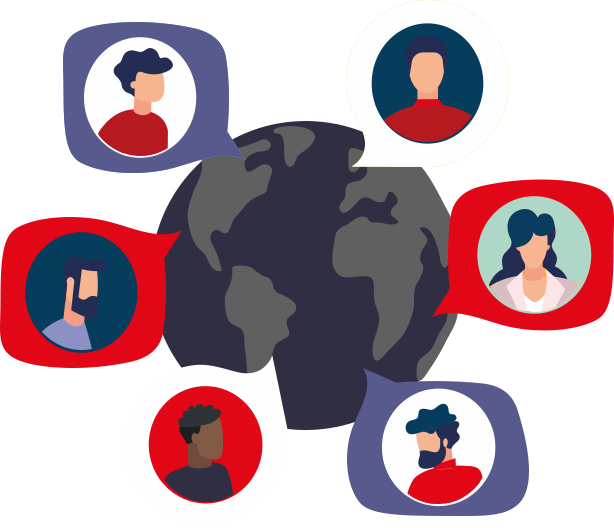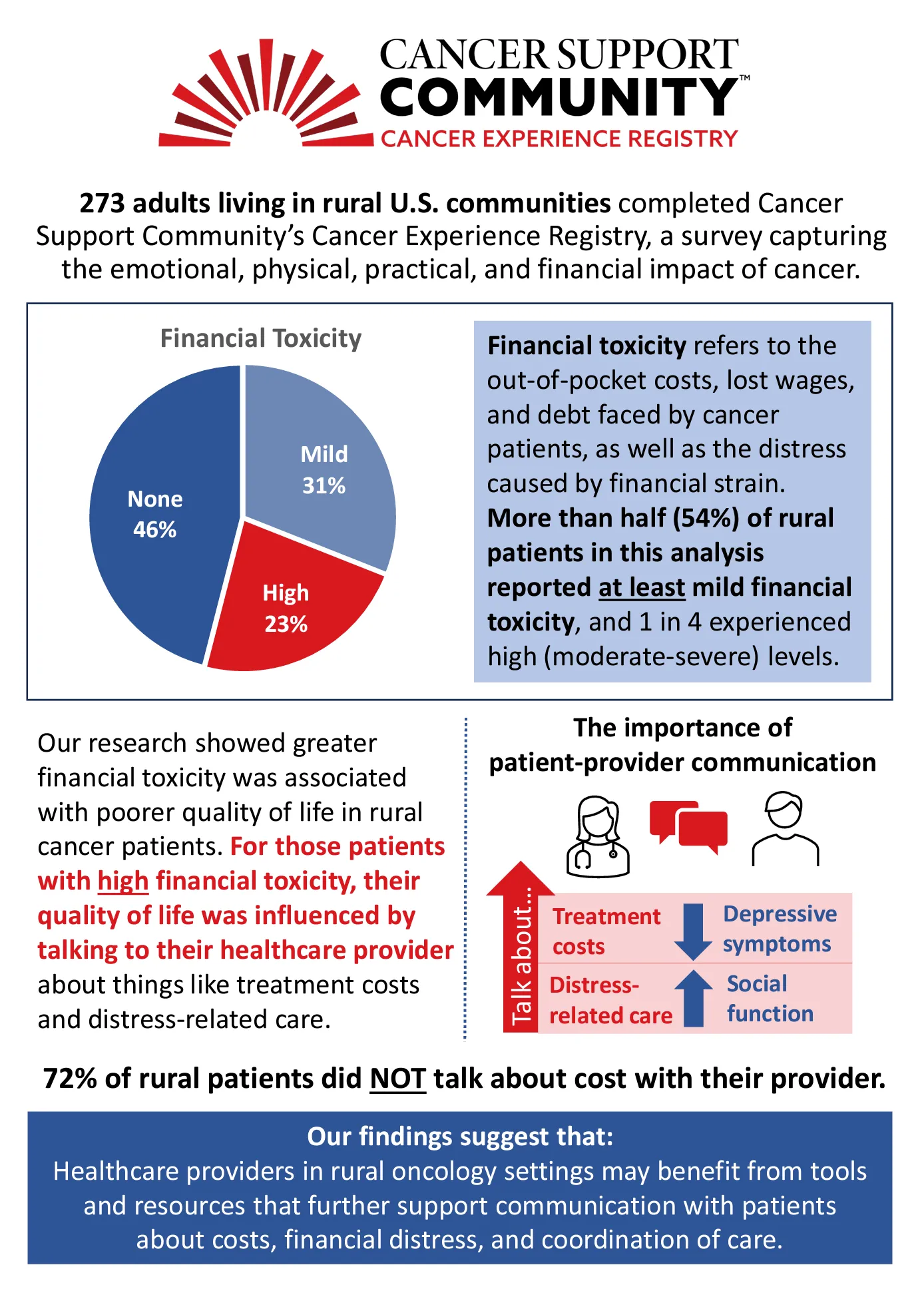
Publications & Presentations
The Cancer Support Community is a leader in research on the patient, survivor, and caregiver experience. Our work appears in posters and presentations shared at professional conferences, published articles in preeminent peer-reviewed journals, educational materials for patients and caregivers, and comprehensive research reports to help inform cancer care and patient advocacy.

Use the search filters below to discover our research findings on diverse topics related to patient and caregiver quality of life, including:
- Psychosocial well-being and symptom management
- Patient-provider communication
- Treatment options
- Patient advocacy
- Financial toxicity and other barriers to health equity
- Experiences and perspectives on precision medicine
CSC recognized that patients and caregivers undergoing CAR T-Cell Therapy benefit from specialized 1:1 support throughout their treatment course. The Cancer Support Helpline customized the already established navigation framework to support this specific population.
While many nutrition-related resources and guidelines focus on physical health outcomes, support around nutrition and eating behaviors can have critical implications for mental health and quality of life outcomes among breast cancer patients and survivors.
AML can have a considerable impact on social well-being, including personal and work domains. In this study, we aimed to determine the feasibility of creating a composite score for social toxicity and examine its prevalence of individuals diagnosed with AML.
MDS is a complex diagnosis that can pose challenges for shared decision-making between providers and patients. In this study, we aimed to identify informational gaps of individuals with an MDS diagnosis.
Anxiety, depression, and suicidality are commonly found in men with prostate cancer. In this study we aimed to identify sociodemographic, clinical, and social factors associated with anxiety and depression risk in men with prostate cancer.
Financial toxicity contributes to psychosocial distress among cancer patients and survivors. We examined associations between financial toxicity and psychosocial wellbeing among rural cancer patients, exploring variability in these linkages by healthcare team communication.
Clinical trials are key to making progress against cancer, yet fewer than 1 in 20 adult cancer patients enroll in clinical trials, and only 3-5% identify as Black or African American (AA). Peer support is an evidence-based practice used in various disease states and is proven to increase patient knowledge, social supports, and care navigation; yet few programs exist within the cancer clinical trial space, and fewer are specific to the needs of Black/AA cancer patients. In Spring 2022, 8 individuals participated in a 12-hour, 6-part virtual training series for Peer Specialists as part of CSC’s Peer Clinical Trials Support Program.
In this report, we highlight recent RTI initiatives from 2020 - 2023, which are driven by both comprehensive enduring needs in the cancer community, such as quality of life, access to care, and financial impact, as well as focused emerging needs, such as those related to COVID-19 and evolving approaches in cancer care, like biomarker testing.
Addressing the psychosocial well-being of people living with HIV (PLHIV) can impact healthoutcomes. While depression and substance use screening is practiced widely, few tools screen for and respond to broader distress and unmet needs. We evaluated the feasibility, acceptability, and short-term outcomes of HIV Support Source (HIVSS), an electronic psychosocial distress screening and referral program for PLHIV.
Innovations in technology and biomedical treatment are transforming cancer care, yet many patients lack access to quality mental and behavioral health care. Cancer patients face substantial barriers to accessing care for emotional and mental health concerns due to practical barriers and shortages of qualified mental health providers, which have been exacerbated during pandemic conditions.
